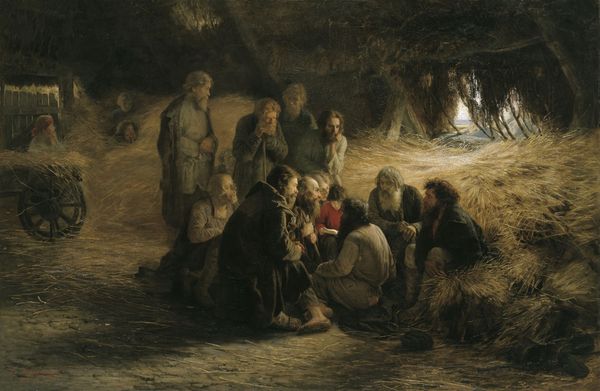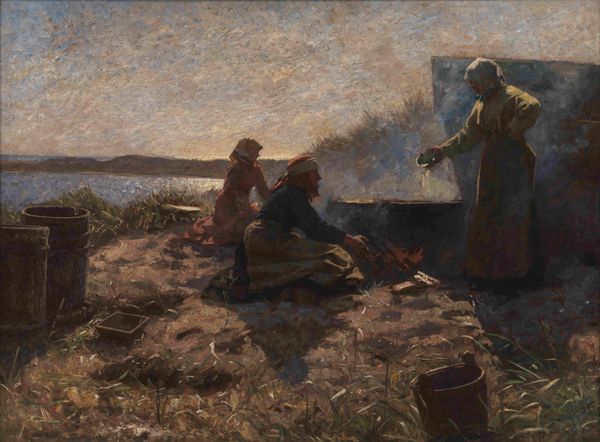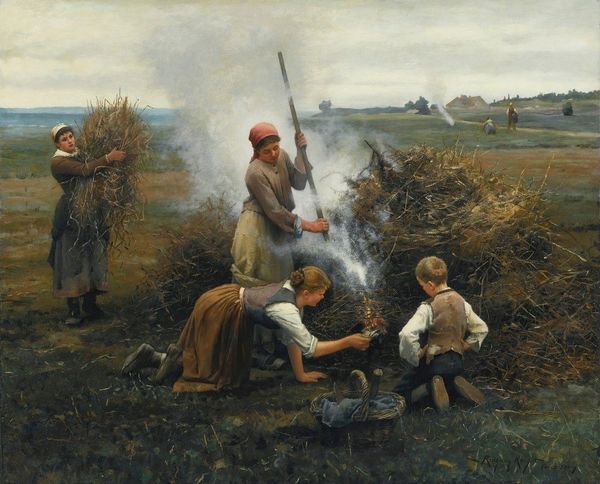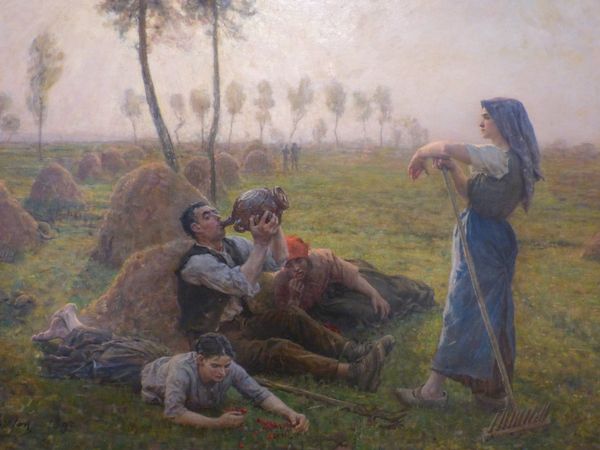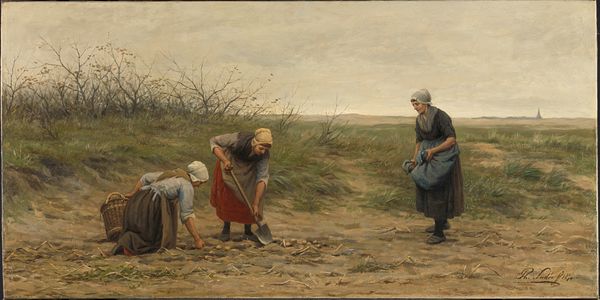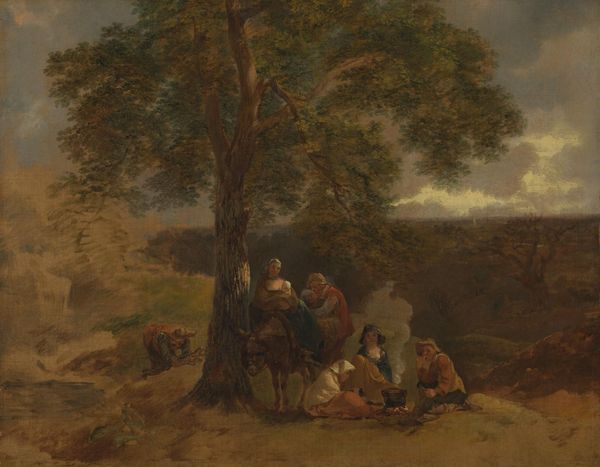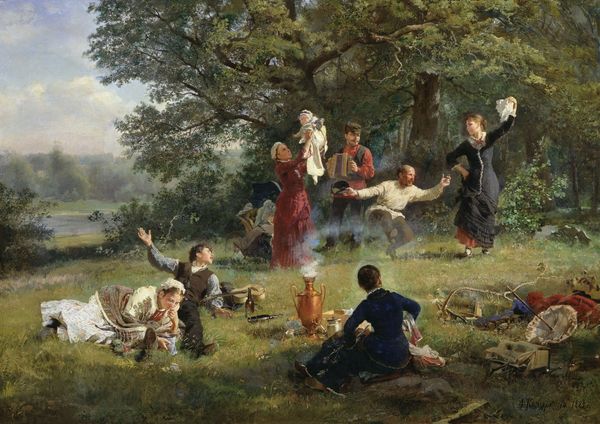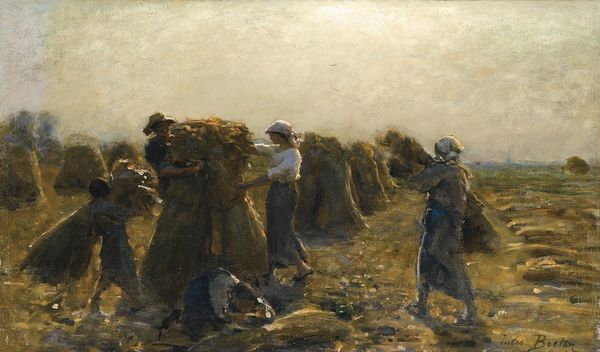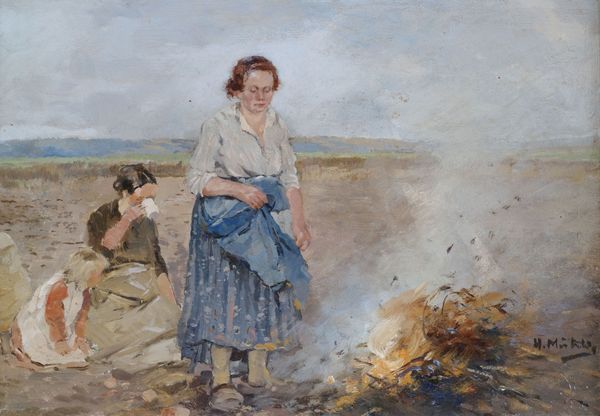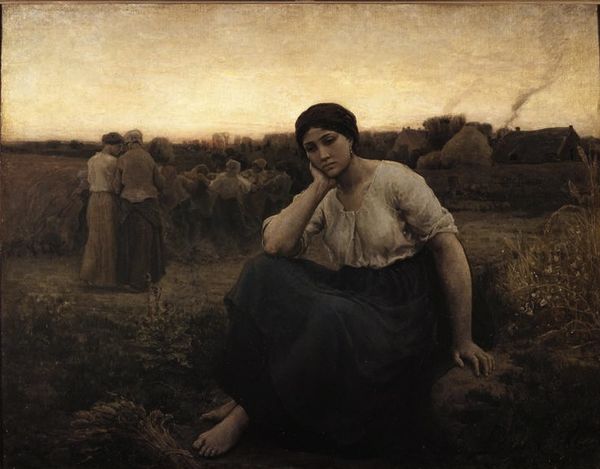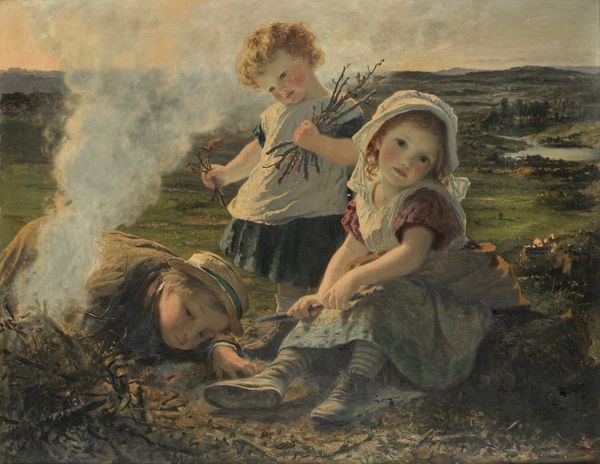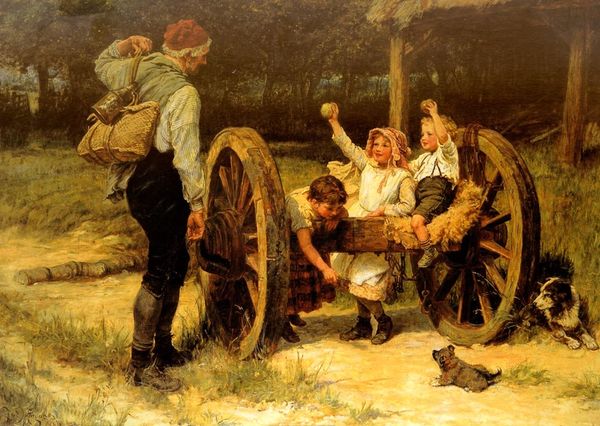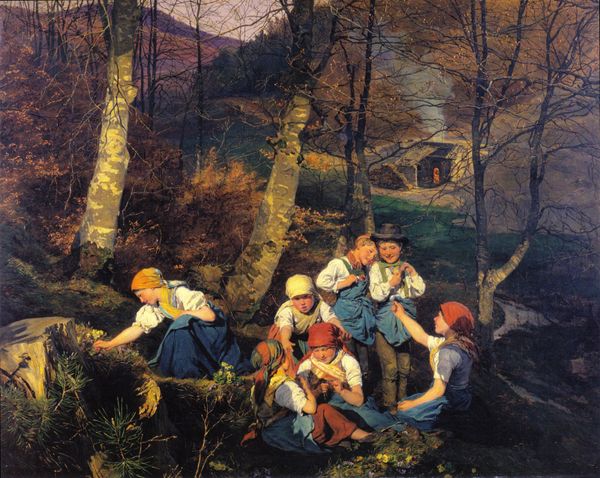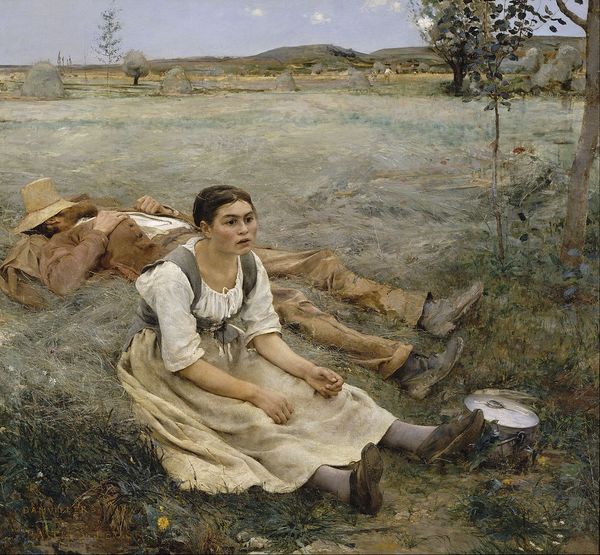
Dimensions: support: 832 x 1264 mm frame: 1027 x 1567 x 120 mm
Copyright: CC-BY-NC-ND 4.0 DEED, Photo: Tate
Curator: It's hard to miss the weariness in Frederick Walker's "The Vagrants." Editor: Yes, the somber earth tones and the figures huddled around that meager fire definitely evoke a sense of hardship. You can almost smell the smoke. Curator: The smoke might be seen to symbolize the transience of their existence, always moving, never settled, their lives ephemeral like the wafting smoke. Editor: And those worn clothes, patched and layered, tell a story of constant reuse and repair, of making do with what little they have. It speaks to the labor of survival. Curator: Indeed. And the woman standing apart, arms crossed, suggests a detachment from the immediate struggle, a kind of watchful protectiveness, perhaps embodying resilience itself. Editor: Seeing the world through Walker's brush, it is impossible to ignore the everyday struggles of transient communities, and their impact on our cultural memory. Curator: Looking at "The Vagrants," it's clear that Walker sought to capture both the material poverty and the enduring human spirit, through paint.
Comments
Join the conversation
Join millions of artists and users on Artera today and experience the ultimate creative platform.
tate 10 months ago
⋮
In this staged image, children huddle together for warmth around a fire, while a woman stands close by, eyes downcast. Frederick Walker introduced social realist art to Britain, advocating for social reform by drawing attention to difficult working and living conditions. Homelessness, or what was termed ‘vagrancy’, was illegal in Victorian times and many saw it as a public threat. Here, Walker depicts people experiencing homelessness in a sympathetic light. Although he died at thirty-five, Walker remained an important influence on socially aware printmakers and painters, including Vincent van Gogh. Gallery label, January 2025
